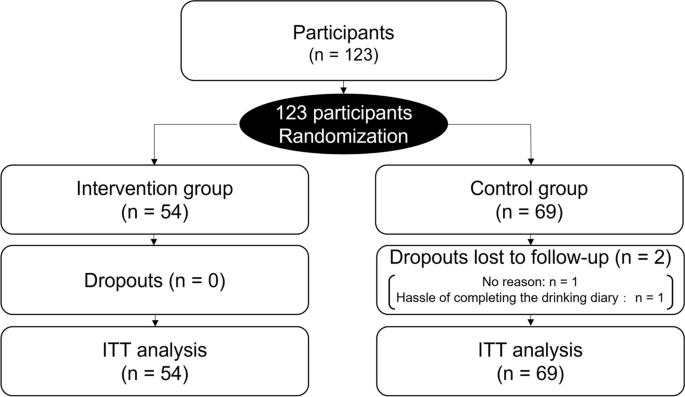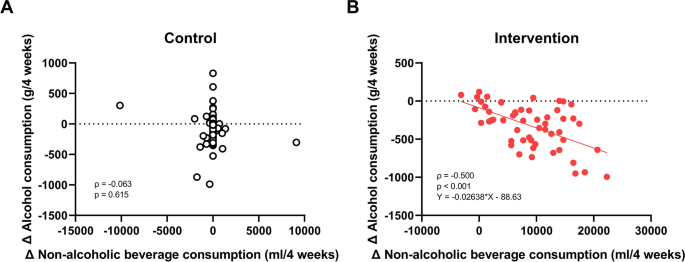・Our results suggested that providing free non-alcoholic beverages was associated with significantly reduced alcohol consumption.
・This effect persisted for 8 weeks after the completion of the intervention.
・Providing non-alcoholic beverages may be a strategic option for reducing alcohol consumption among people with excessive drinking.
Abstract
There is currently limited evidence on the effect of non-alcoholic beverages, with insufficient research on whether providing non-alcoholic beverages directly affects alcohol consumption. We examined this question in a randomized controlled study in excessive drinkers, excluding those with alcoholism.
Fifty-four (43.9%) were allocated to the intervention group and 69 (56.1%) to the control group. In the intervention group, free non-alcoholic beverages were provided once every 4 weeks for 12 weeks (three times in total), and thereafter, the number of alcoholic and non-alcoholic beverages consumed were recorded for up to 20 weeks. The consumption of alcoholic and non-alcoholic beverages was calculated based on a drinking diary submitted with the previous 4 weeks of data. The primary endpoint was the change from baseline in total alcohol consumption during past 4 weeks at week 12. At Week 12, alcohol consumption was reduced by an average of 11.5 g per day. On the other hand, the average volume of non-alcoholic beverages consumed per day was 314.3 mL. Correlation analysis showed a significant and moderate negative correlation between changes from baseline in alcohol consumption and non-alcoholic beverage consumption, but only in the intervention group.
Benefit
In this study, the provision of free non-alcoholic beverages for 12 weeks significantly reduced alcohol consumption. In the intervention group, this effect persisted not only during the intervention period but also up to 8 weeks following completion of the 12-week intervention. Our study is the first to suggest that providing non-alcoholic beverages reduces alcohol consumption.
Market Application
These findings can be used to develop interventions for individuals and formulate global strategies and community approaches such as policymaking.
Publications
https://bmcmedicine.biomedcentral.com/articles/10.1186/s12916-023-03085-1



